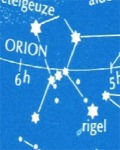TagliatelliMonster
Veteran Member
They are my colleagues, as this is my living (physics, mostly quantum foundations but also statistics of complex systems and statistical physics, data analysis in HEP, etc.). I am not, however, a cosmological. Luckily, however, cosmologists don't try to hide well-known facts. They disagree about many things as we do in physics and the sciences more generally, but it is well-known even by the most hard-core proponents of inflation that the evidence is based on models that require inserting physics we have no evidence of and do not understand (in terms of how these fields could actually work if they existed) to "predict" observations we already made. Later observations that have contradicted inflationary models are taken to be opportunities to create "better" models, while observations that are in general agreement with classes of inflationary models are taken to be confirmation.
This was brought to a head a few years ago when a popular science article prompted an unusual response from inflation proponents. You can read about it and the response of the critics here:
Pop goes the universe
I get the feeling that you don't read the technical literature and probably don't possess the requisite mathematical and physics background to do so, so I won't bother with references or links to such literature (if I've misjudged, though, please feel free to correct me and I can make said literature available for you)
Technically, you are the one arguing with a physicist. But it's ok. I don't mind.
I go by what world renown physicists say. As said, I'm not arrogant enough to argue with them or claim them to be wrong.
Having said that, you seem to be also missing the entire point.
Once again: I was responding to a statement that said that I find it easier to believe in multi-verses then to believe in creation gods. My answer to that was YES, with the qualifier that I don't believe in multi-verses either. Instead, I find it easier to believe in them.
The reason being that they are at least plausible and well-motivated from a foundation in scientific inquiry. Even if it turns out to be wrong.
I'm not interested in the technicalities quite simply because I lack the necessary qualifications.
You can claim that you are a physicist but I can not verify that claim. To me you are just a random anonymous bloke on the interwebs.
And even if you are a physicist - I'm happy to accept it for the sake of argument - that still doesn't change anything about what world renown physicists have to say on this topic.
You can disagree with them and that's fine. We are talking about the very frontiers of scientific knowledge after all, where plenty of unconfirmed - yet well-motivated- hypothesis live.
None of this changes the point I was actually making.


